How to Deal with the Globalization Backlash?
Video playlist
Press review
Insight
Globalization in reverse?
“How to Deal with the Globalization Backlash?” was the question for leading thinkers and academics at the UBS Center Forum for Economic Dialogue.
Resurgent nationalism, rejection of free trade, opposition to immigration, growing global inequality, and a retreat from multilateralism: These are the defining issues of our time that fuel the globalization backlash, which reached seismic proportions in 2016. Does it herald the end of the economic and political consensus that has underpinned the international order since the end of the Cold War?
Read our full Insight on Globalization in reverse? by Maura Wyler, Head of Communication.
Globalization in reverse?
“How to Deal with the Globalization Backlash?” was the question for leading thinkers and academics at the UBS Center Forum for Economic Dialogue.
Resurgent nationalism, rejection of free trade, opposition to immigration, growing global inequality, and a retreat from multilateralism: These are the defining issues of our time that fuel the globalization backlash, which reached seismic proportions in 2016. Does it herald the end of the economic and political consensus that has underpinned the international order since the end of the Cold War?
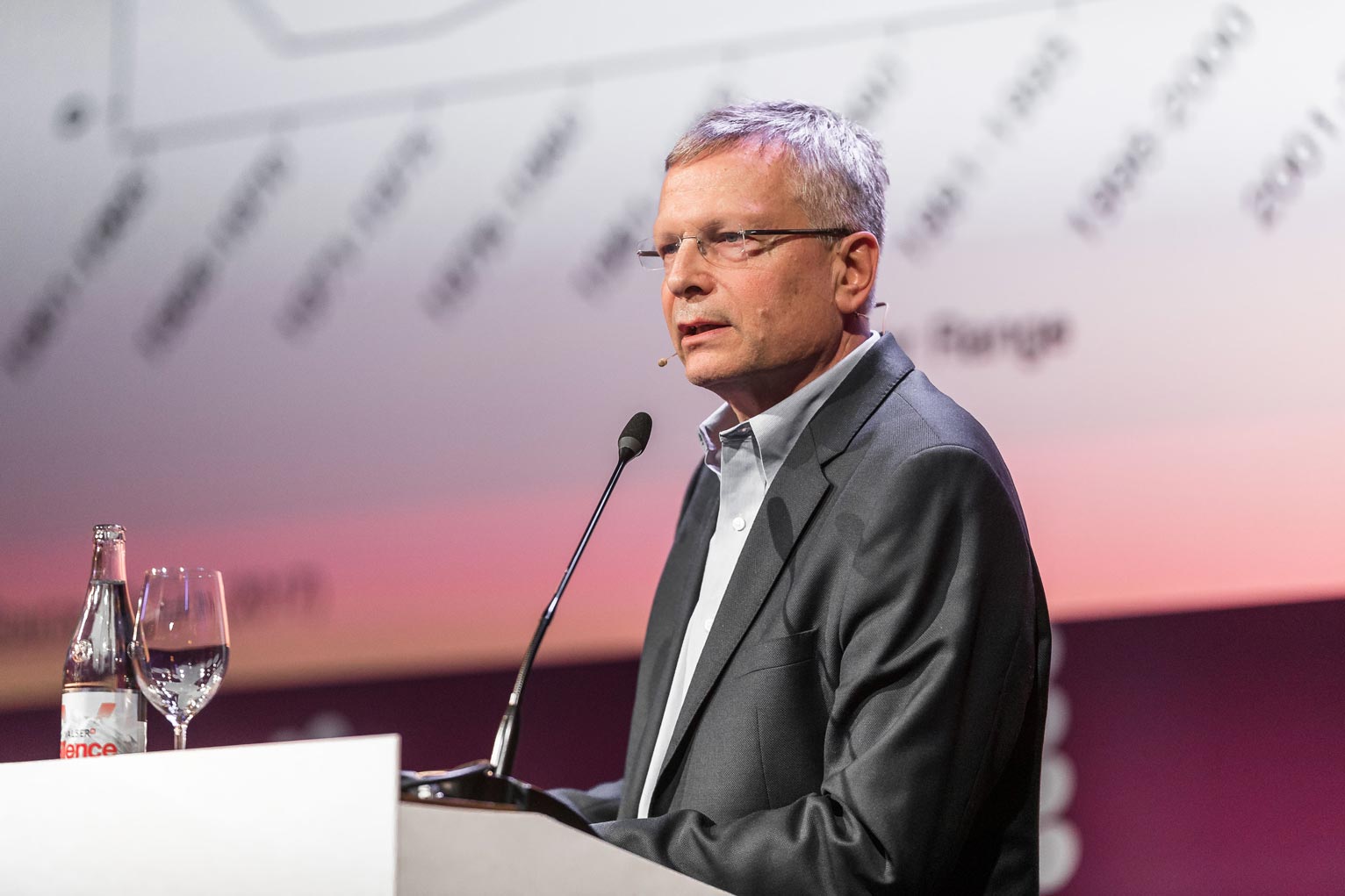
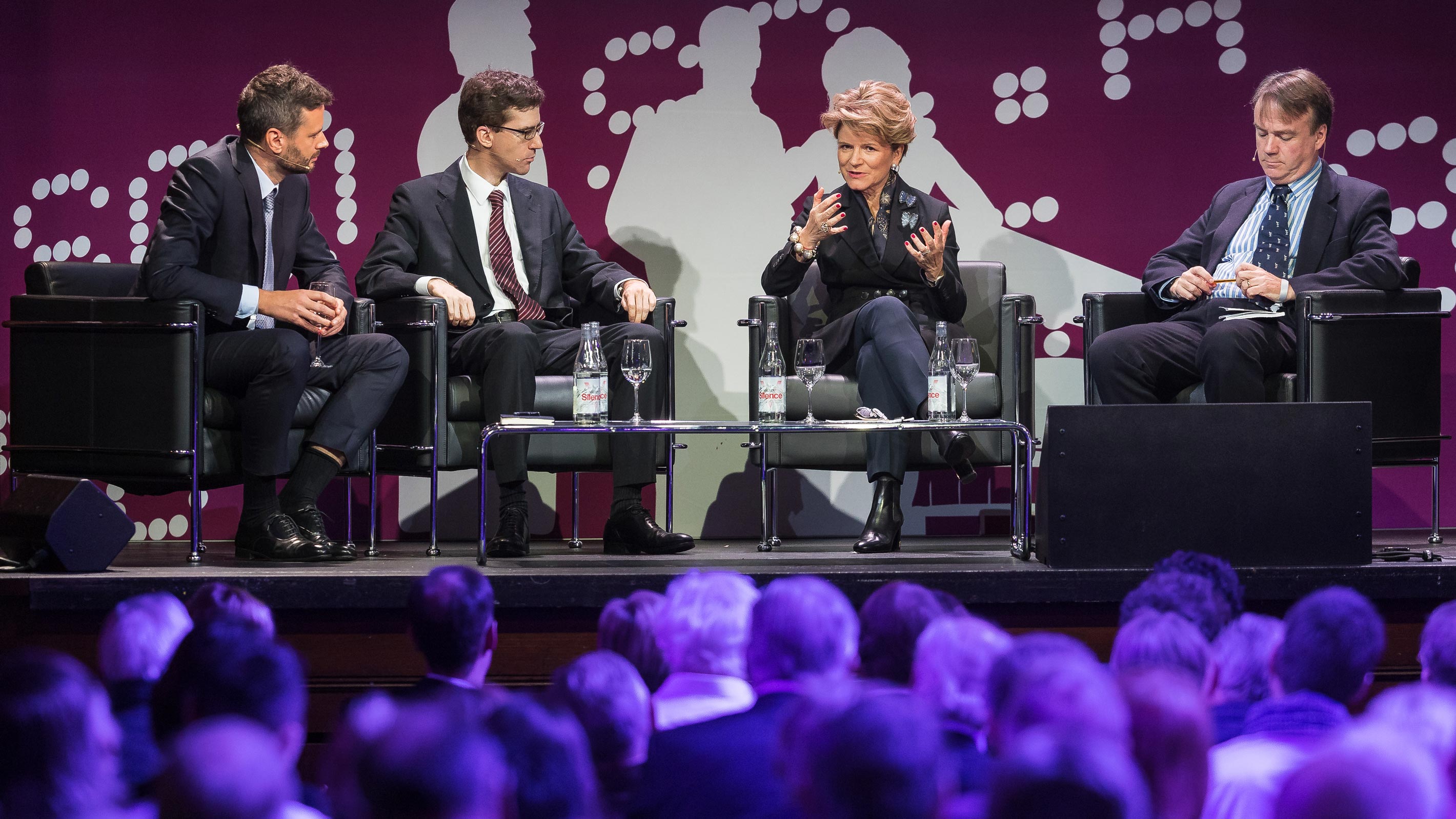
Intro
2016 was the year when basic tenets of the international order were challenged – first in the UK and then in the U.S. Since then, Donald Trump has withdrawn the U.S. from the Trans-Pacific Partnership and is threatening to pull out of the North American Free Trade Agreement, to introduce new tariffs on various countries, and to diminish immigration. Europe is in the midst of acrimonious Brexit negotiations, whose outcome and wider international impacts remain unclear. The ongoing migration crisis is leading to a tightening of immigration policies around the globe. Are we on the brink of an era of de-globalization and re-nationalization?
At this year’s Forum we wanted to assess the gains and challenges of globalization and to evaluate strategies for dealing with a potential globalization backlash. Panel sessions included “Free trade – an idea in decline?”, “How to do business amidst the globalization backlash?”, and “How much globalization do we want?”. In addition to these sessions, the Forum featured keynote speeches by Prof. Leszek Balcerowicz (Warsaw School of Economics) and Prof. Dani Rodrik (Harvard University).
2016 was the year when basic tenets of the international order were challenged – first in the UK and then in the U.S. Since then, Donald Trump has withdrawn the U.S. from the Trans-Pacific Partnership and is threatening to pull out of the North American Free Trade Agreement, to introduce new tariffs on various countries, and to diminish immigration. Europe is in the midst of acrimonious Brexit negotiations, whose outcome and wider international impacts remain unclear. The ongoing migration crisis is leading to a tightening of immigration policies around the globe. Are we on the brink of an era of de-globalization and re-nationalization?
At this year’s Forum we wanted to assess the gains and challenges of globalization and to evaluate strategies for dealing with a potential globalization backlash. Panel sessions included “Free trade – an idea in decline?”, “How to do business amidst the globalization backlash?”, and “How much globalization do we want?”. In addition to these sessions, the Forum featured keynote speeches by Prof. Leszek Balcerowicz (Warsaw School of Economics) and Prof. Dani Rodrik (Harvard University).
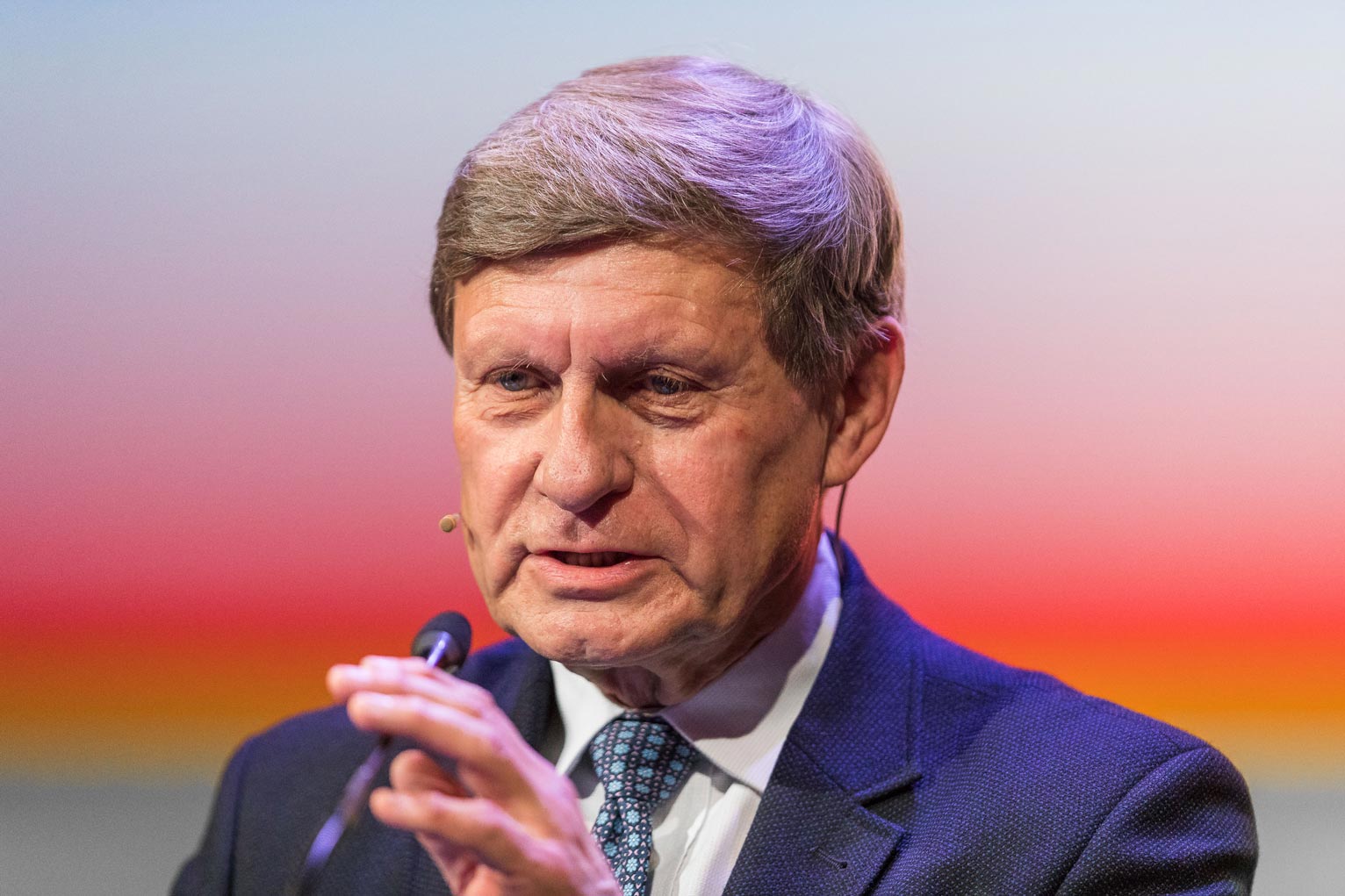
Photo gallery
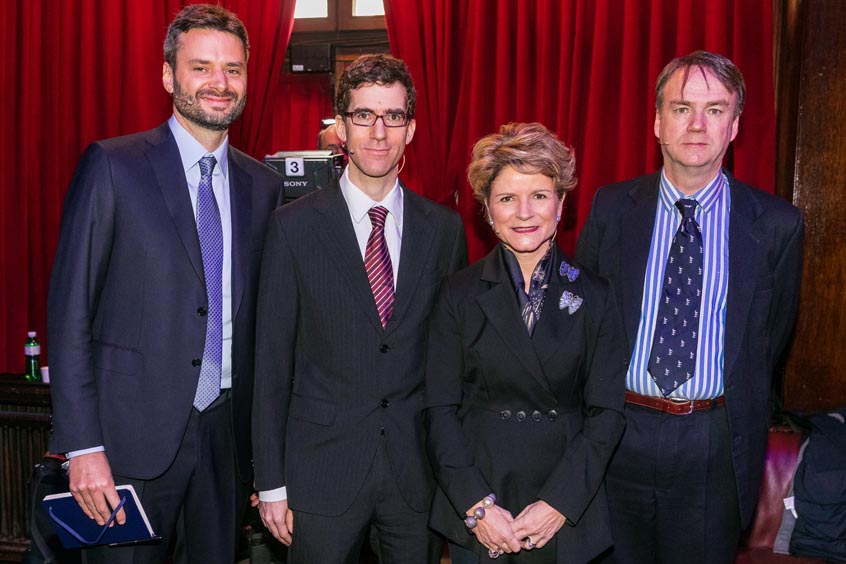
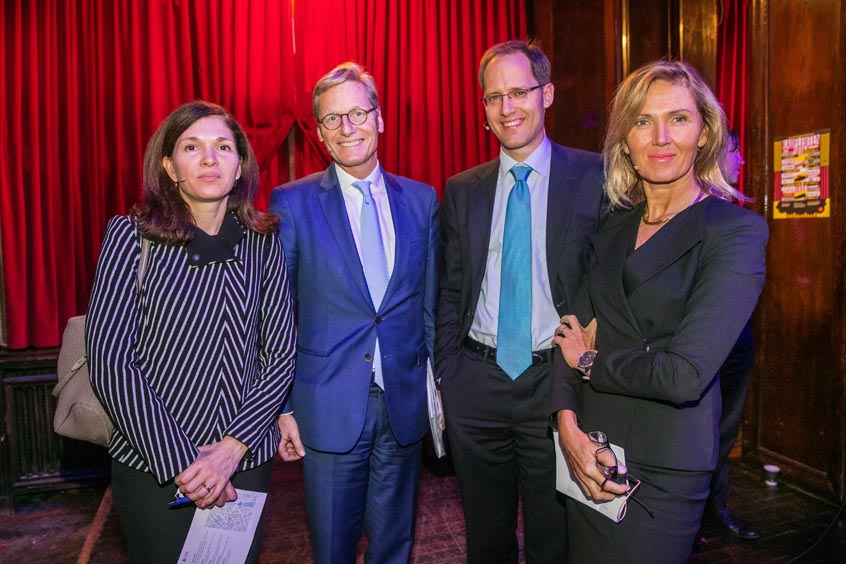
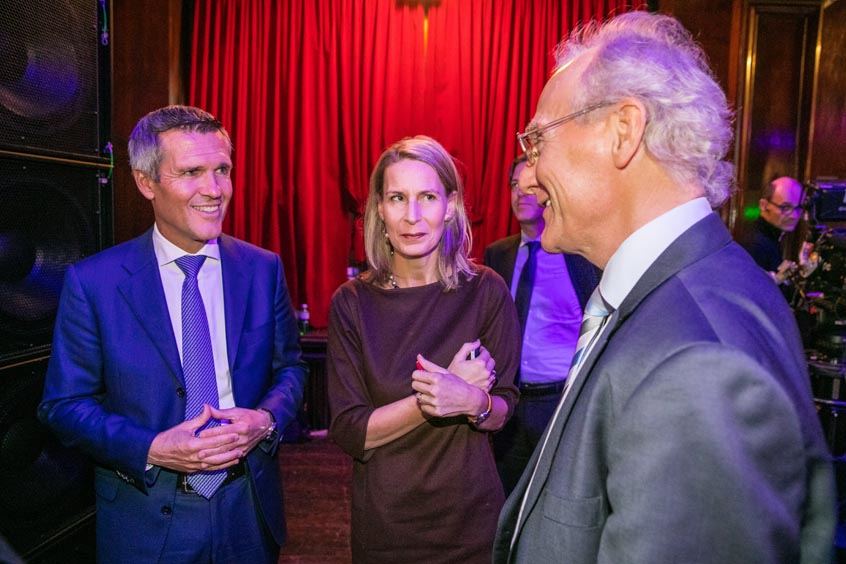
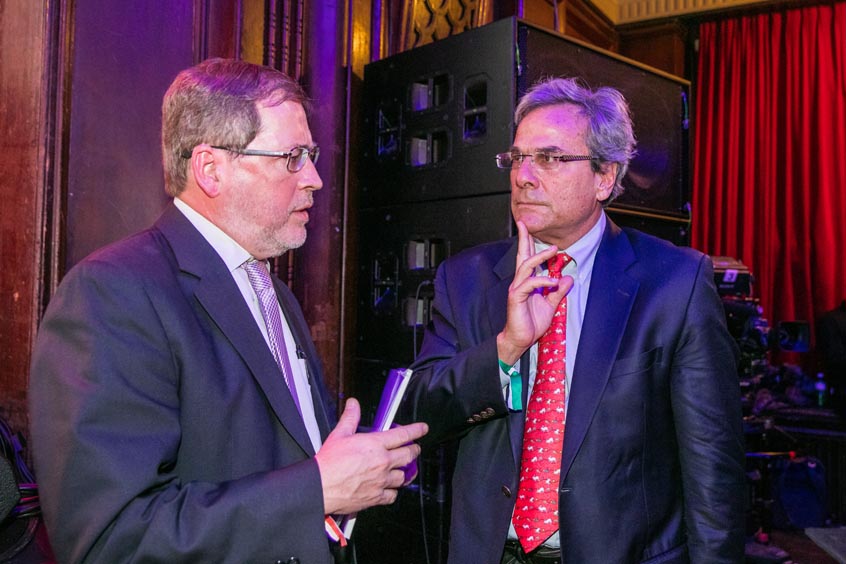
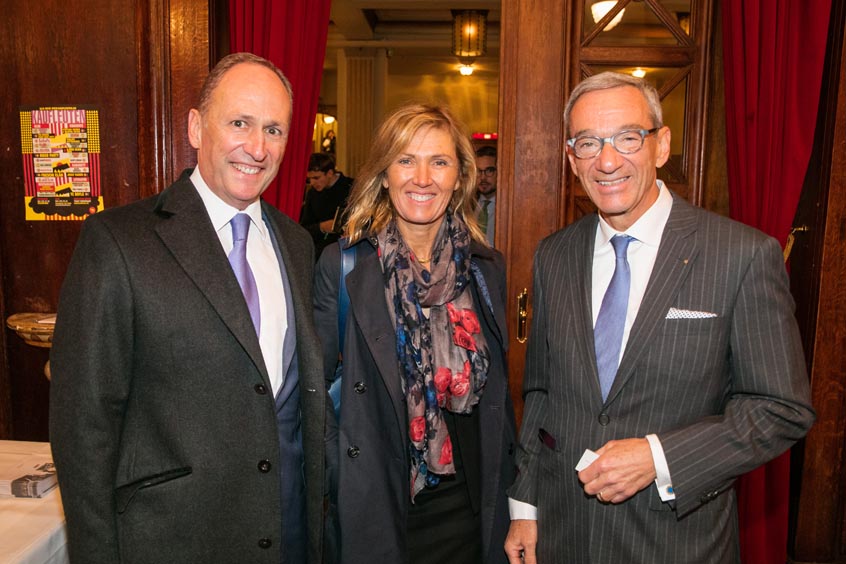
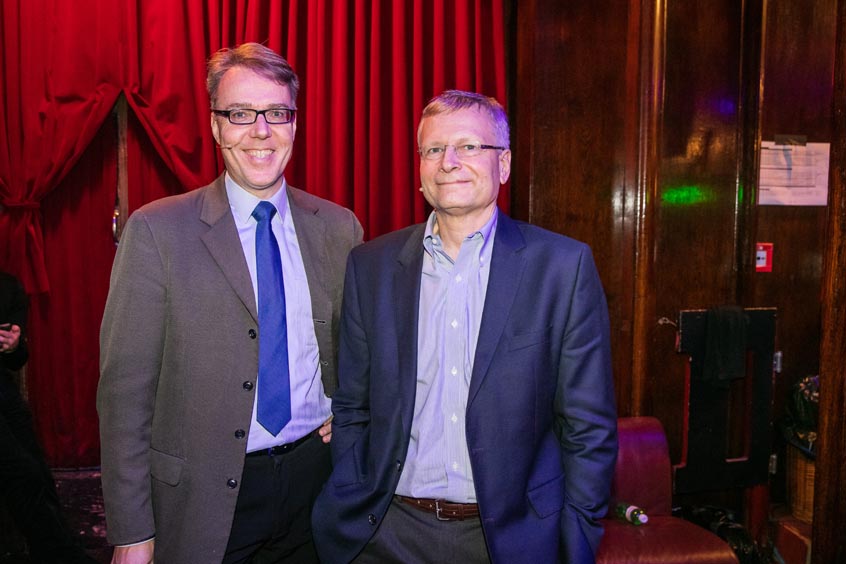
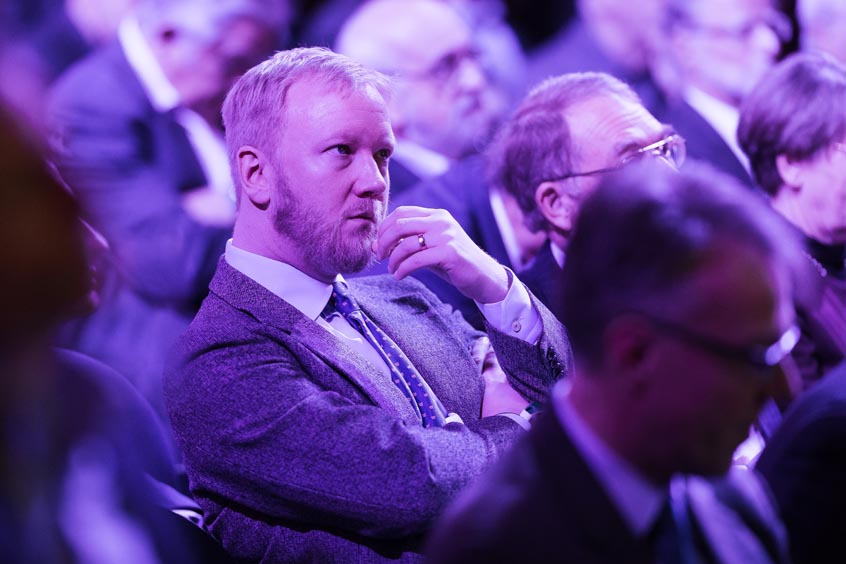
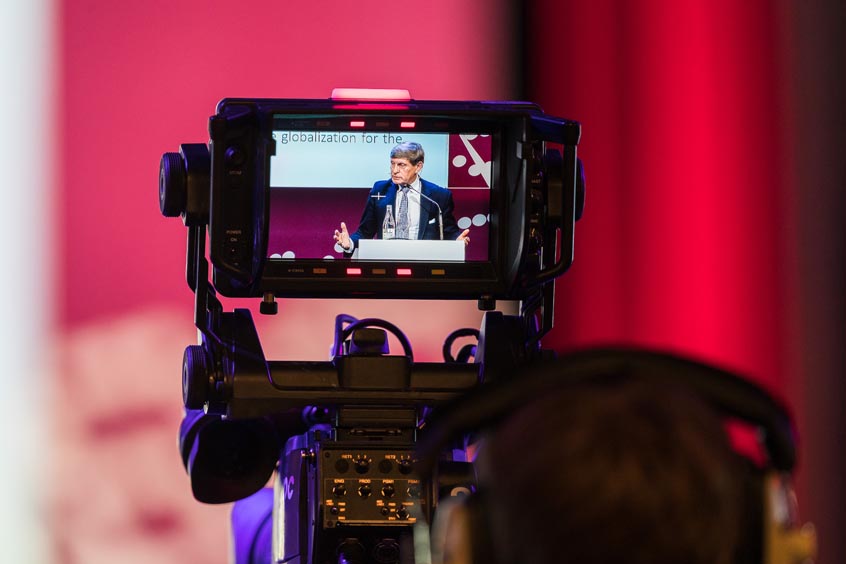
Program
Speakers
"Leszek Balcerowicz is Professor of Economics at the Warsaw School of Economics (WSE). He is former Deputy Prime Minister and Minister of Finance (1989–1991 and 1997–2000) and former President of the National Bank of Poland (2001–2007). Balcerowicz is recipient of over thirty honors from universities and awards worldwide: Ludwig Erhard Prize, Transatlantic Leadership Award, Central European Award for the Finance Minister of the Year 1998 in Central and Eastern Europe, Friedrich Augusta von Hayek Prize, Carl Bertelsmann Prize, Fasel Foundation Prize, Leontief Prize, Jegor Gajdar Prize, Milton Friedman Prize, among many. For his contribution to the reforms in Poland, he was awarded with the Order of the White Eagle in 2005, Poland’s highest decoration.
Leszek Balcerowicz is the author of more than hundred publications on economic issues in Poland and abroad. He is a member of the Group of Thirty, founded by Paul Volcker. From 2008 to 2012 Leszek Balcerowicz was the chairman of Bruegel board and was then appointed Honorary Chairman. He was a member of the High Level Expert Group on EU Financial Supervision chaired by Jacques de Larosiére. In 2009 he was elected President of the International Atlantic Economic Society. Furthermore, Leszek Balcerowicz created FOR – the Civil Development Forum Foundation, a free market think tank in Poland in 2007."
"Dani Rodrik is the Ford Foundation Professor of International Economy at the John F. Kennedy School of Government at Harvard University. He has published widely in the areas of economic development, international economics and political economy. His current research focuses on populism, industrialization and structural change in developing economies, and interaction of ideas and interests in policy change. The question of what constitutes good economic policy and why some governments are more successful than others at adopting it, is at the center of his research.
His newest book is Straight Talk on Trade: Ideas for a Sane World Economy (2017). He is also the author of Economics Rules: The Rights and Wrongs of the Dismal Science (2015), The Globalization Paradox: Democracy and the Future of the World Economy (2011), and One Economics, Many Recipes: Globalization, Institutions, and Economic Growth (2007). He is currently President-Elect of the International Economic Association."
Laura Alfaro is the Warren Alpert Professor of Business Administration at Harvard Business School. She is also a Faculty Research Associate in the National Bureau of Economic Research’s International Macroeconomics and Finance Program, member of the Latin-American Financial Regulatory Committee (CLAAF), member of the steering committee of the Central Bank Research Association (CEBRA), Faculty Associate at Harvard’s Weatherhead Center for International Affairs, and member of the David Rockefeller Center for Latin American Studies’ (DRCLAS) policy committee.
In 2008 she was honored as a Young Global Leader by the World Economic Forum. She served as Minister of National Planning and Economic Policy in Costa Rica from 2010 to 2012.
Carl Bildt served both as Prime Minister (1991 to 1994) and as Foreign Minister (2006 to 2014) of Sweden. He first became a Member of Parliament in 1979 and was elected leader of the Moderate Party in 1986, which – through a four-party coalition – went on to defeat the Social Democrats in 1991. Carl Bildt led a government focused on liberalizing and reforming the economy and making Sweden a member of the European Union. After stepping down as leader of the Moderate Party of Sweden in 1999 and leaving Parliament in 2000, he served in international functions with the EU and UN, primarily related to the conflicts in the Balkans. He was Co-Chairman of the Dayton peace talks on Bosnia and became the first High Representative in the country. Later, he was the Special Envoy of UN Secretary General Kofi Annan to the region. In 2006 he returned as Foreign Minister of Sweden
Carl Bildt also serves as a Senior International Advisor of Akin Gump Global Solutions and as member of the Editorial Board at Europe’s World. He holds advisory positions in numerous i nternational organizations, including the Centre for European Reform, the Aspen Institute Italia, and RAND Europe.
David Dorn received his doctorate from the University of St. Gallen in 2009. His work studies the impact of globalization and automation on the labor market and society. He showed that rapidly rising import competition from China had more profound impacts on the U.S. labor market than was previously assumed. The relative decline of employment and wages in trade-exposed locations is also associated with decreasing marriage rates, rising drug mortality, and increased electoral support for politicians with non-moderate ideologies. In other work, he studies how the automation of routine labor and the rise of superstar firms have contributed to various facets of inequality. David’s work has been cited in thousands of academic papers and hundreds of newspaper articles.
Ernst Fehr received his doctorate from the University of Vienna in 1986. His work has shown how social motives shape the cooperation, negotiations and coordination among actors and how this affects the functioning of incentives, markets and organisations. His work identifies important conditions under which cooperation flourishes and breaks down. The work on the psychological foundations of incentives informs us about the merits and the limits of financial incentives for the compensation of employees. In other work he has shown the importance of corporate culture for the performance of firms. In more recent work he shows how social motives affect how people vote on issues related to the redistribution of incomes and how differences in people’s intrinsic patience is related to wealth inequality. His work has found large resonance inside and outside academia with more than 100’000 Google Scholar citations and his work has been mentioned many times in international and national newspapers.
Katja Gentinetta is a Swiss political and economic philosopher. Since 2011, she has worked as an independent author, op-ed-writer, university lecturer, and strategic leader. She studied in Zurich and Paris and received her PhD for her work on the limits of tolerance in plural societies. She deepened her management knowledge and leadership skills in executive education in Salzburg, Harvard and at INSEAD and looks back on a long career as a leader in culture, politics and business. Katja Gentinetta has published a series of non-fiction books on social and economic policy issues. She has also been a TV moderator for many years, as host of “Sternstunde Philosophie” and co-host of NZZ Standpunkte at Swiss TV.
Karl Gernandt acts as the Executive Chairman of the Kühne Holding AG, the unit which concentrates all activities of Mr. Klaus-Michael Kühne. Furthermore, he has been Vice-Chairman of the Board of Directors of Kühne + Nagel International AG since May 2016 after having been Executive Chairman from 2011 to 2016.
On October 1, 2008, Klaus-Michael Kühne, majority shareholder of Kühne + Nagel International AG, appointed Karl Gernandt as his successor. Consequently, Gernandt became CEO of Kühne’s privately held Kühne Holding AG, Schindellegi. In 2009 he was appointed Delegate of the Board of Directors of Kühne + Nagel International AG. He is a member of the Board of Trustees of the Kühne Foundation, Switzerland. He has been a member of the Board of Directors of Hapag-Lloyd AG since 2009 and he has been sitting on the Board of VTG AG, Hamburg, since 2017.
State Secretary Marie-Gabrielle Ineichen-Fleisch has been SECO Director and Director of the Foreign Economic Affairs Directorate since 1 April 2011. From 2007 to 2011 she was a Federal Council Ambassador and Delegate for Trade Agreements, Switzerland’s chief negotiator at the World Trade Organization (WTO) as well as member of the SECO Board of Directors and in addition to the WTO responsible for the OECD and free trade agreements as head of the World Trade Division in the Foreign Economic Affairs Directorate. From 1999 to 2007 she was head of the WTO sector after having been head of section in the WTO Division of the Federal Office of Foreign Economic Affairs as of 1995. In 1992 and 1993 she worked at the World Bank (Washington D.C., USA) as assistant to Switzerland’s Executive Director.
Marie-Gabrielle Ineichen-Fleisch gained her law degree at the University of Berne qualifying as an attorney in 1987 and her MBA from INSEAD in 1989.
"Grover Norquist is president of Americans for Tax Reform (ATR), a coalition of taxpayer groups, individuals, and businesses opposed to higher taxes at the federal, state, and local levels. ATR organizes the Taxpayer Protection Pledge, which asks all candidates for federal and state office to commit themselves in writing to oppose all tax increases. In the 115th Congress, 210 House members and 46 Senators have taken the pledge.
Mr. Norquist also serves on the board of directors of the National Rifle Association of America and the American Conservative Union and as president of the American Society of Competitiveness. He is the author of three books, Rock the House; Leave Us Alone – Getting the Government’s Hands Off Our Money , Our Guns, Our Lives; and (with co-author John Lott) Debacle: Obama’s War on Jobs and Growth and What We Can Do Now to Regain Our Future. He is an alumnus of the American Swiss Foundation’s Young Leaders Conference."
Kevin O’Rourke is Chichele Professor of Economic History at the University of Oxford and a fellow of All Souls College, Oxford. In January 2014 he additionally became Research Director of the Centre for Economic Policy Research (CEPR).
Kevin O’Rourke’s research lies at the intersection of economic history and international economics. He has published extensively on the history of globalization and deglobalization, and is still working on these themes. O’Rourke is currently working on interwar trade and trade policy and is also interested in the relationships between trade and war.
Ralph Ossa is Chairman of the Department of Economics and was recently appointed Kühne Foundation Professor of International Trade by the University of Zurich. He left the UBS Center at the end of March 2019. Professor Ossa held the Professorship of Economics of Globalization and Emerging Markets, endowed by the UBS Center, from 2017 to 2019.
Florian Scheuer received his PhD from MIT in 2010. He is interested in the policy implications of rising inequality, with a focus on tax policy. In particular, he has worked on incorporating important features of real-world labor markets into the design of optimal income and wealth taxes. These include economies with rent-seeking, superstar effects or an important entrepreneurial sector, frictional financial markets, as well as political constraints on tax policy and the resulting inequality. His work has been published in the American Economic Review, the Journal of Political Economy, the Quarterly Journal of Economics and the Review of Economic Studies, among other journals. In 2017, he received an ERC starting grant for his research on “Inequality - Public Policy and Political Economy.” Before joining Zurich, he was on the faculty at Stanford, held visiting positions at Harvard and UC Berkeley and was a National Fellow at the Hoover Institution. He is Co-Editor of Theoretical Economics and Member of the Board of Editors of the Review of Economic Studies. He is also a Co-Director of the working group on Macro Public Finance at the NBER. He has commented on tax policy in various US and Swiss media outlets.
Joachim Voth received his PhD from Oxford in 1996. He works on financial crises, long-run growth, as well as on the origins of political extremism. He has examined public debt dynamics and bank lending to the first serial defaulter in history, analysed risk-taking behaviour by lenders as a result of personal shocks, and the investor performance during speculative bubbles. Joachim has also examined the deep historical roots of anti-Semitism, showing that the same cities where pogroms occurred in the Middle Age also persecuted Jews more in the 1930s; he has analyzed the extent to which schooling can create radical racial stereotypes over the long run, and how dense social networks (“social capital”) facilitated the spread of the Nazi party. In his work on long-run growth, he has investigated the effects of fertility restriction, the role of warfare, and the importance of state capacity. Joachim has published more than 80 academic articles and 3 academic books, 5 trade books and more than 50 newspaper columns, op-eds and book reviews. His research has been highlighted in The Economist, the Financial Times, the Wall Street Journal, the Guardian, El Pais, Vanguardia, La Repubblica, the Frankfurter Allgemeine, NZZ, der Standard, der Spiegel, CNN, RTN, Swiss and German TV and radio.
Beatrice Weder di Mauro holds the Chair of Economic Policy and International Macroeconomics at the University of Mainz in Germany. Presently she is Distinguished Fellow in residence at the Emerging Markets Institute of INSEAD in Singapore. Her research addresses policy-related questions in international macroeconomics. Recent publications have focused on reforms of the eurozone, debt sustainability, cross-border banking regulation, financial integration, international competitiveness, G20 and the global financial architecture.
Ms. Weder di Mauro was a member of the German Council of Economic Experts from 2004 to 2012. She was a resident scholar at the International Monetary Fund (IMF) in Washington, DC, in 2010 and a visiting scholar at the National Bureau of Economic Research, Cambridge, MA, in 2006. Weder di Mauro is currently a member of the board of Bombardier in Montreal, of Robert Bosch in Stuttgart and of UBS Group in Zurich.
"Leszek Balcerowicz is Professor of Economics at the Warsaw School of Economics (WSE). He is former Deputy Prime Minister and Minister of Finance (1989–1991 and 1997–2000) and former President of the National Bank of Poland (2001–2007). Balcerowicz is recipient of over thirty honors from universities and awards worldwide: Ludwig Erhard Prize, Transatlantic Leadership Award, Central European Award for the Finance Minister of the Year 1998 in Central and Eastern Europe, Friedrich Augusta von Hayek Prize, Carl Bertelsmann Prize, Fasel Foundation Prize, Leontief Prize, Jegor Gajdar Prize, Milton Friedman Prize, among many. For his contribution to the reforms in Poland, he was awarded with the Order of the White Eagle in 2005, Poland’s highest decoration.
Leszek Balcerowicz is the author of more than hundred publications on economic issues in Poland and abroad. He is a member of the Group of Thirty, founded by Paul Volcker. From 2008 to 2012 Leszek Balcerowicz was the chairman of Bruegel board and was then appointed Honorary Chairman. He was a member of the High Level Expert Group on EU Financial Supervision chaired by Jacques de Larosiére. In 2009 he was elected President of the International Atlantic Economic Society. Furthermore, Leszek Balcerowicz created FOR – the Civil Development Forum Foundation, a free market think tank in Poland in 2007."
"Dani Rodrik is the Ford Foundation Professor of International Economy at the John F. Kennedy School of Government at Harvard University. He has published widely in the areas of economic development, international economics and political economy. His current research focuses on populism, industrialization and structural change in developing economies, and interaction of ideas and interests in policy change. The question of what constitutes good economic policy and why some governments are more successful than others at adopting it, is at the center of his research.
His newest book is Straight Talk on Trade: Ideas for a Sane World Economy (2017). He is also the author of Economics Rules: The Rights and Wrongs of the Dismal Science (2015), The Globalization Paradox: Democracy and the Future of the World Economy (2011), and One Economics, Many Recipes: Globalization, Institutions, and Economic Growth (2007). He is currently President-Elect of the International Economic Association."
Laura Alfaro is the Warren Alpert Professor of Business Administration at Harvard Business School. She is also a Faculty Research Associate in the National Bureau of Economic Research’s International Macroeconomics and Finance Program, member of the Latin-American Financial Regulatory Committee (CLAAF), member of the steering committee of the Central Bank Research Association (CEBRA), Faculty Associate at Harvard’s Weatherhead Center for International Affairs, and member of the David Rockefeller Center for Latin American Studies’ (DRCLAS) policy committee.
In 2008 she was honored as a Young Global Leader by the World Economic Forum. She served as Minister of National Planning and Economic Policy in Costa Rica from 2010 to 2012.
Carl Bildt served both as Prime Minister (1991 to 1994) and as Foreign Minister (2006 to 2014) of Sweden. He first became a Member of Parliament in 1979 and was elected leader of the Moderate Party in 1986, which – through a four-party coalition – went on to defeat the Social Democrats in 1991. Carl Bildt led a government focused on liberalizing and reforming the economy and making Sweden a member of the European Union. After stepping down as leader of the Moderate Party of Sweden in 1999 and leaving Parliament in 2000, he served in international functions with the EU and UN, primarily related to the conflicts in the Balkans. He was Co-Chairman of the Dayton peace talks on Bosnia and became the first High Representative in the country. Later, he was the Special Envoy of UN Secretary General Kofi Annan to the region. In 2006 he returned as Foreign Minister of Sweden
Carl Bildt also serves as a Senior International Advisor of Akin Gump Global Solutions and as member of the Editorial Board at Europe’s World. He holds advisory positions in numerous i nternational organizations, including the Centre for European Reform, the Aspen Institute Italia, and RAND Europe.